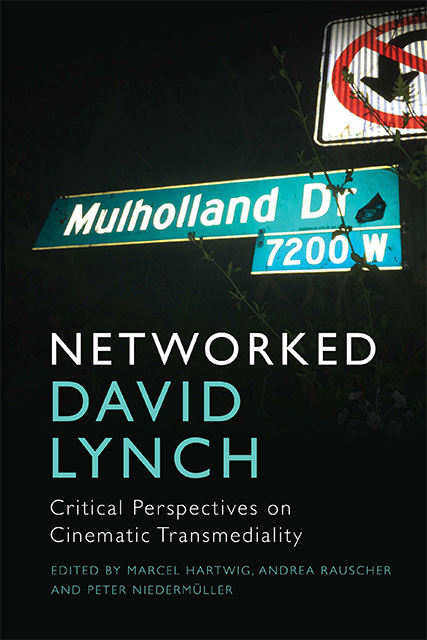Book contents
- Frontmatter
- Contents
- List of Figures
- Notes on Contributors
- Introduction: Entering Lynchtown
- Part I Approaching Intertexts
- Part II Twin Peaks as Transmedia Network
- Part III David Lynch's Transmedia Aesthetics
- Part IV Videographic Criticism of David Lynch’s Cinematic Work
- Conclusion: Leaving Lynchtown
- Index
Chapter 13 - A Form that Keeps Unravelling: On David Lynch, Spontaneity and Organic Fluidity in Videographic Essay Production and Academia
Published online by Cambridge University Press: 19 October 2023
- Frontmatter
- Contents
- List of Figures
- Notes on Contributors
- Introduction: Entering Lynchtown
- Part I Approaching Intertexts
- Part II Twin Peaks as Transmedia Network
- Part III David Lynch's Transmedia Aesthetics
- Part IV Videographic Criticism of David Lynch’s Cinematic Work
- Conclusion: Leaving Lynchtown
- Index
Summary
‘We are like the dreamer who dreams, and then lives inside the dream. But who is the dreamer?’
Monica Bellucci, Twin Peaks: The Return (Lynch, Frost 2017)Introduction
It was autumn 2017: the dawn of a new semester, riddled with new challenges. Fresh from my undergraduate studies, I was thrown into a new role as a masters student, and I was reeling with anticipation for the years to come. The academic expectations were higher, and the workload hit me like a brick wall. Although I felt ashamed to admit it, I had never been an academic at heart. I was, and always would be, a Bohemian soul that thrived on creativity and emotions rather than science and logic. But I was pleasantly surprised during a course called ‘Outreach and Communication’, which served to ‘equip the students with the tools to express and share their knowledge and expertise beyond the bounds of academia, and through different forms and genres.’ (Norwegian University of Science and Technology 2017). As the course description further elaborates, the aim was to teach students about the various forms of communication in online environments, which included blogs, academic articles, op-eds, and so on. The compulsory assignment consisted of an oral presentation of a project that would form the basis for the exam. When I realised that the exam was quite open for experimentation, I decided to explore the still vastly uncharted territory of the videographic essay with a focus on the aesthetics and filmography of David Lynch.
I had recently watched the television series Twin Peaks (1990–1) for the first time and have since been exposed to Lynch's earlier works; his art, his short films and the surreal Eraserhead (1977). Lynch appeared to me a visionary postmodern genius who confronted and reconstructed the familiar commercial traditions of filmmaking into something new and exciting. There is no doubt that his films are a direct extension of his art. Film allowed Lynch to add movement and sound to the muteness and static nature of his paintings as well as ‘an opportunity to extend beyond their frame.’ (Mactaggart 2010: 12).
- Type
- Chapter
- Information
- Networked David LynchCritical Perspectives on Cinematic Transmediality, pp. 236 - 255Publisher: Edinburgh University PressPrint publication year: 2023



